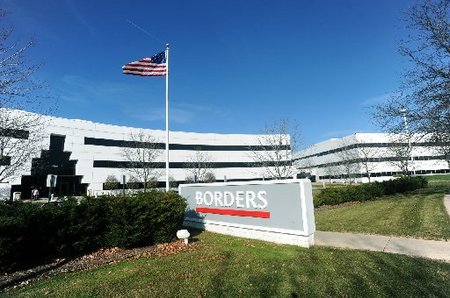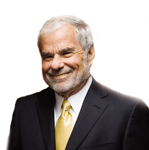 In the many analyses of Borders's problems, people cite a
range of reasons, most notably the company's decision to outsource its
website to Amazon in 2001; a revolving door in the executive suite over
the past few years; expensive long-term leases; and a huge debt load.
But for us there were other factors that hurt Borders, some of the
company's own making, some it had no control over:
In the many analyses of Borders's problems, people cite a
range of reasons, most notably the company's decision to outsource its
website to Amazon in 2001; a revolving door in the executive suite over
the past few years; expensive long-term leases; and a huge debt load.
But for us there were other factors that hurt Borders, some of the
company's own making, some it had no control over:
The purchase
of Borders by Kmart in 1992 was not so bad in and of itself, but Kmart's
decision to merge Borders with Waldenbooks, which Kmart had bought in
1984, was disastrous. From computers to company culture to focuses on
different types of readers, Borders and Walden were a bad fit, and
hobbled each other. For Borders in particular, the timing couldn't have
been worse: in the early '90s, chain superstores were beginning major
expansion, and Borders was distracted by the ultimately unsuccessful
effort to merge with Walden. Successive regimes at Borders never seemed
to  appreciate Walden, which at one point had some 1,300 stores, except
perhaps as a cash cow.
appreciate Walden, which at one point had some 1,300 stores, except
perhaps as a cash cow.
For many years, Borders, which was spun
off by Kmart and went public in 1995, had several CEOs from outside the
business--for some reason, two came from food retailing, notably Hickory
Farms and Jewel-Osco, and hired many other top executives from outside
the book business. While having some people from nonbook industries
could provide fresh air and helpful new perspectives, this tendency
seemed to have a corrosive effect on a company that in its early years
was famous for its knowledgeable booksellers and solid, deep selection.
One minor measure: it's been years since anyone has mentioned the
once-legendary book quiz given to prospective Borders staffers. Likely
most of the people running the company in the past few years wouldn't
pass it.
One of the worst ideas brought in from the grocery store
world was category management--the guiding principle of the company for
a good part of the last decade that involved publishers sponsoring and
managing sections--which maybe made sense for food retailing but was a
mind-numbing distraction for Borders and publishers alike when the
company should have been addressing some of its long-term problems,
developing its own website and preparing in other ways for the
electronic revolution.
One of Borders's early advantages--its
computer system, the creation of Louis Borders in the company's early
years--became dated after the Borders brothers sold the company to
Kmart. For many years, Borders and Walden continued to use separate
computer systems. In addition, the Borders system has continued to use
proprietary bar codes, which means that every book ever sold by Borders
has had to have a special sticker printed out and applied to it, usually
over the industry-standard bar code that is printed on all covers and
jackets now. Stocking and restocking in the Borders system lagged behind
its competition.
From our point of view, Borders's last chance
for a turnaround came during the period when George Jones, CEO from 2006
until early 2009, headed the company. He undertook a series of
initiatives, including extensive store remodeling, taking back the
company's website from Amazon, creating (again) a publishing program,
improving merchandising and buying processes. He also spun off most of
the international operations, which were usually  profitable,
but which many considered a distraction. Unfortunately, the financial
collapse in 2008 shook the company to the ground, bringing on the
Ackman-LeBow era of the past two years, when a hedge fund manager and a
corporate raider, both of whom represent the worst of American
capitalism, took over and drove the company into the ground.
profitable,
but which many considered a distraction. Unfortunately, the financial
collapse in 2008 shook the company to the ground, bringing on the
Ackman-LeBow era of the past two years, when a hedge fund manager and a
corporate raider, both of whom represent the worst of American
capitalism, took over and drove the company into the ground. The
record of William Ackman and Bennett LeBow at Borders has involved
inadequate investment, brutal staff cuts, the squeezing of remaining
employees, a revolving door in the executive suite, deals that seemed to
benefit them more than the company and other shareholders, deafness
about the company's problems and the hiring of more management with no
experience in the book world. Last year, who could not believe the end
was at hand when the new chairman and major shareholder of Borders
turned out to be a man who had a history of destroying companies,
"borrowing" from them, and whose claim to fame was taking over a
cigarette company?--John Mutter
The
record of William Ackman and Bennett LeBow at Borders has involved
inadequate investment, brutal staff cuts, the squeezing of remaining
employees, a revolving door in the executive suite, deals that seemed to
benefit them more than the company and other shareholders, deafness
about the company's problems and the hiring of more management with no
experience in the book world. Last year, who could not believe the end
was at hand when the new chairman and major shareholder of Borders
turned out to be a man who had a history of destroying companies,
"borrowing" from them, and whose claim to fame was taking over a
cigarette company?--John Mutter

